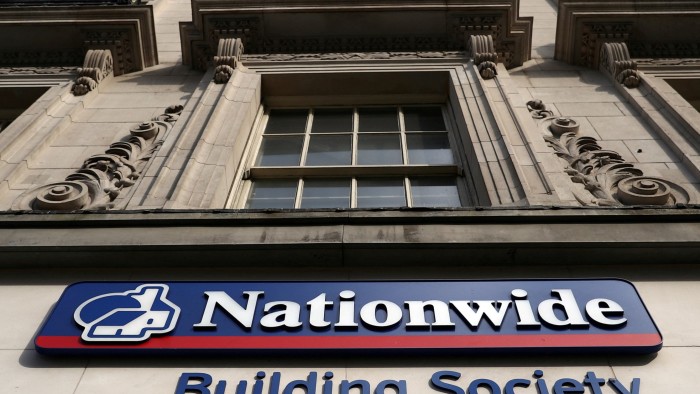Unlock the Editor’s Digest for free
Roula Khalaf, Editor of the FT, selects her favourite stories in this weekly newsletter.
Nationwide, the UK’s largest building society, recorded a £2.3bn gain from its purchase last month of listed lender Virgin Money, as it posted a drop in first-half profits.
In annual results published on Wednesday, the mutual said the value of net assets acquired in its £2.8bn acquisition had been “well above the price we paid”.
“This gain provides significant headroom to cover our investment in integration, as well as in service and value,” said chief executive Debbie Crosbie.
John Cronin, an analyst at SeaPoint Insights said the £2.3bn gain was a “standout feature” in Tuesday’s financial report and “much higher than had been expected when the deal was first announced”.
“Today’s update reiterates the substantial benefits associated with the transaction beyond the immediate financial impact, including increased scale, business diversification, and funding synergies,” he said.
The purchase of Virgin Money has made Nationwide the UK’s second-largest mortgage provider and given it access to Virgin Money’s business banking offering, an area that the mutual previously unsuccessfully attempted to expand organically.
Chris Rhodes, who was Nationwide’s chief financial officer before starting as Virgin Money’s chief executive in October, said on Monday that the bank would create 500 jobs with a focus on improving its customer service.
Nationwide completed its acquisition of Virgin Money in October, but the two businesses will initially remain separate. The building society is aiming to reduce the risks associated with IT integration by combining the lenders slowly, and will phase out the Virgin brand over six years.
“We want to make these improvements in customer service, we want to invest in the proposition, and then ultimately, we will [bring] business banking to Nationwide,” said Rhodes, adding that a key segment for the mutual would be micro businesses, and owner-managed businesses such as local trades people.
His comments came as Nationwide reported a 43 per cent fall in pre-tax profits for the six months to the end of September, to £568mn, as falling interest rates ate into its earnings, while it aimed to sustain “competitive” rates for members.
Simon Gammon, managing partner at broker Knight Frank Finance said Nationwide has been “consistent in its pricing in a volatile market” and “generally stayed among the cheapest on the high street in a market characterised by erratic moves in rates”, helping it gain market share.
The mutual has increased its total mortgage lending to £211bn, up from £205bn in April. Similarly, Nationwide’s deposit balances rose by £8bn to £202bn.
As a result of the Virgin Money acquisition, Nationwide’s Common Equity Tier 1 capital ratio — a measure of financial resilience — decreased to 19.6 per cent as at October 1, down from 28.4 per cent at the end of September, in line with the lender’s guidance.



